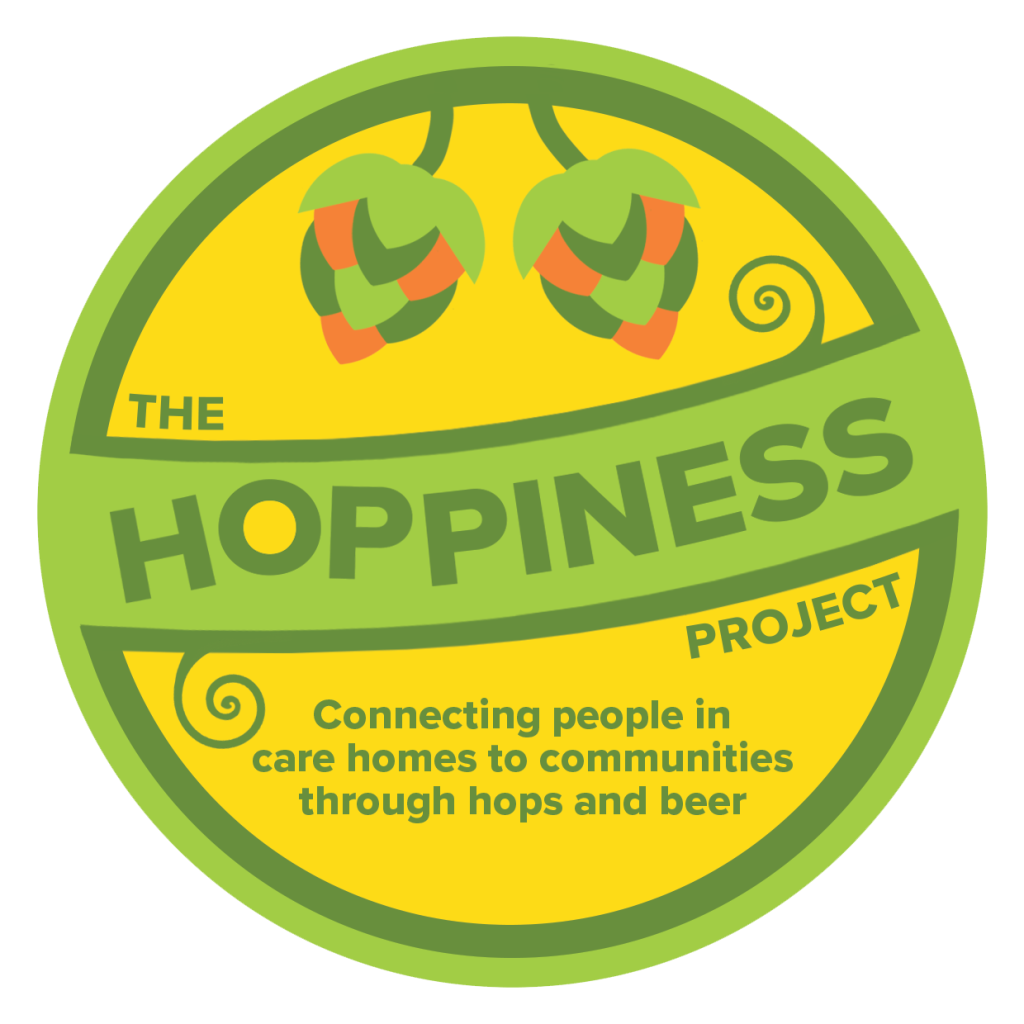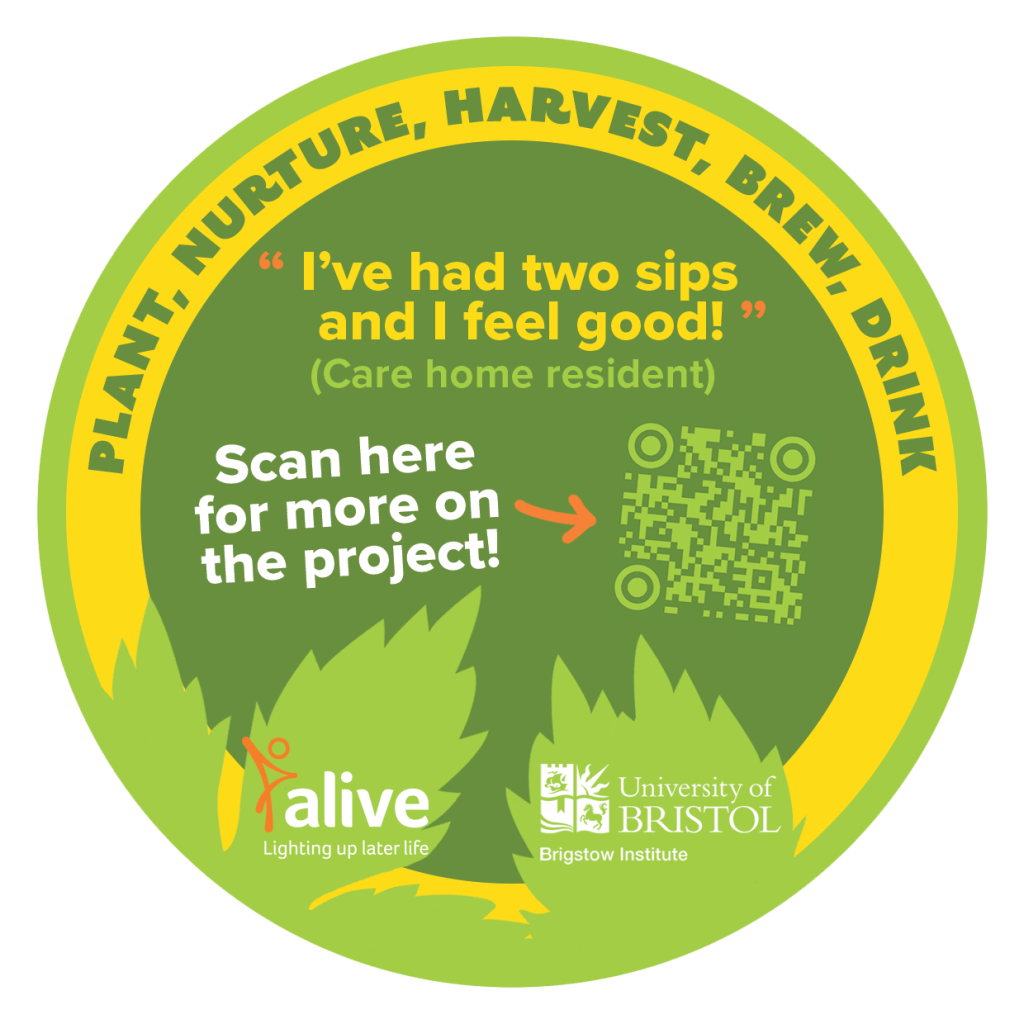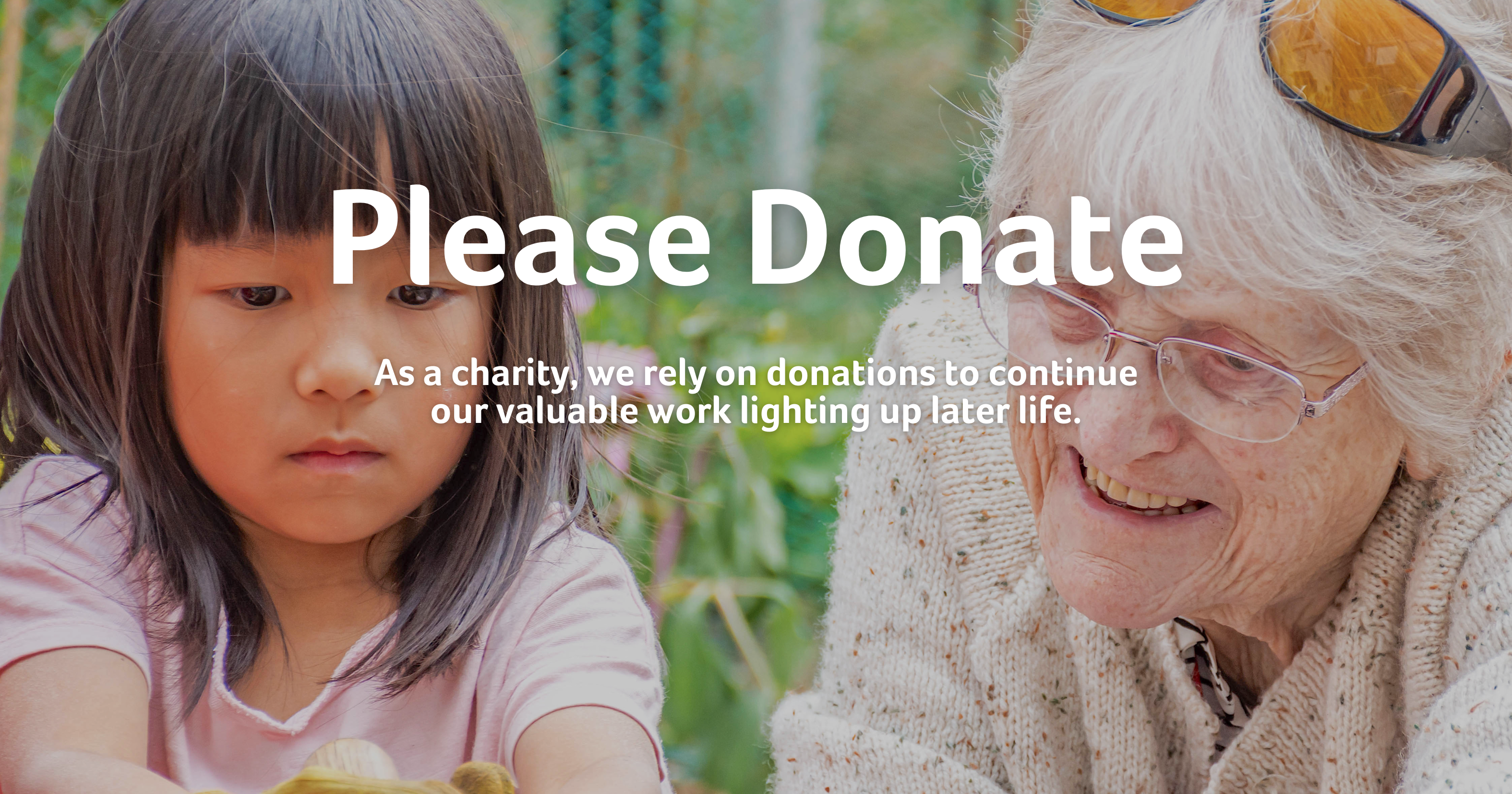The Hoppiness Project is a collaborative undertaking between Alive and the University of Bristol.
Borrowing from learning across all our various care home activity sessions, and our work with people living with dementia more broadly, we have co-designed a series of sessions that we take into care homes to gently explore drinking culture with residents and engage in gardening and other activities together.
During one of the first sessions, a hop gets planted in the garden at the care home. It is then tended to and nurtured by residents, who collectively pick the hops once they’re ready to harvest. These hops go to a local brewery, where they join the hops of other growers across the city and a green hop beer is brewed.
We end with a big party to celebrate the beer.
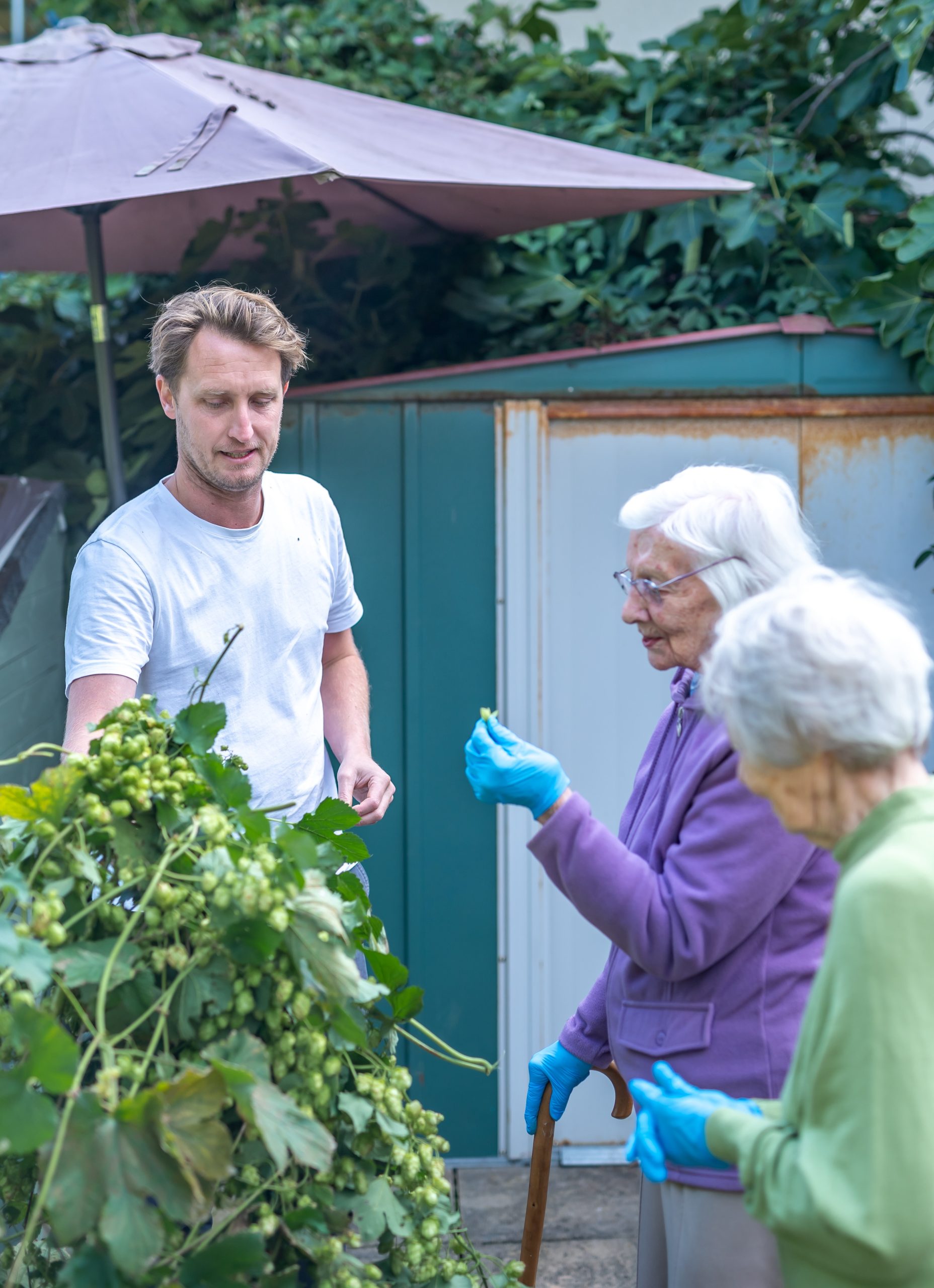
Project Partners
Hoppiness is a truly collaborative venture for Alive. A chance encounter in 2022 with a researcher from the University of Bristol, led to our securing a seedcorn grant from The Brigstow Institute to fund a pilot. A year later, a further grant was secured with Brigstow to expand the project’s reach. An interdisciplinary university team was assembled to explore various research elements. Designer Camilla Adams also joined the team.
Other project partners include Bristol Hops Collective – a community of hops growers across Bristol who’ve been supplying a local brewery with green hops for seven years – and local brewery Left Handed Giant, who brewed the beer and hosted a brewery tour.
Finally, a nod to the care homes we’ve worked with: Deerhurst Care Home in Soundwell, Meadowcare Care Home in Redland and Beaufort Grange Care Home in Filton. Without their activity coordinators’ enthusiastic support, the sessions’ impact would have been far less than it was.
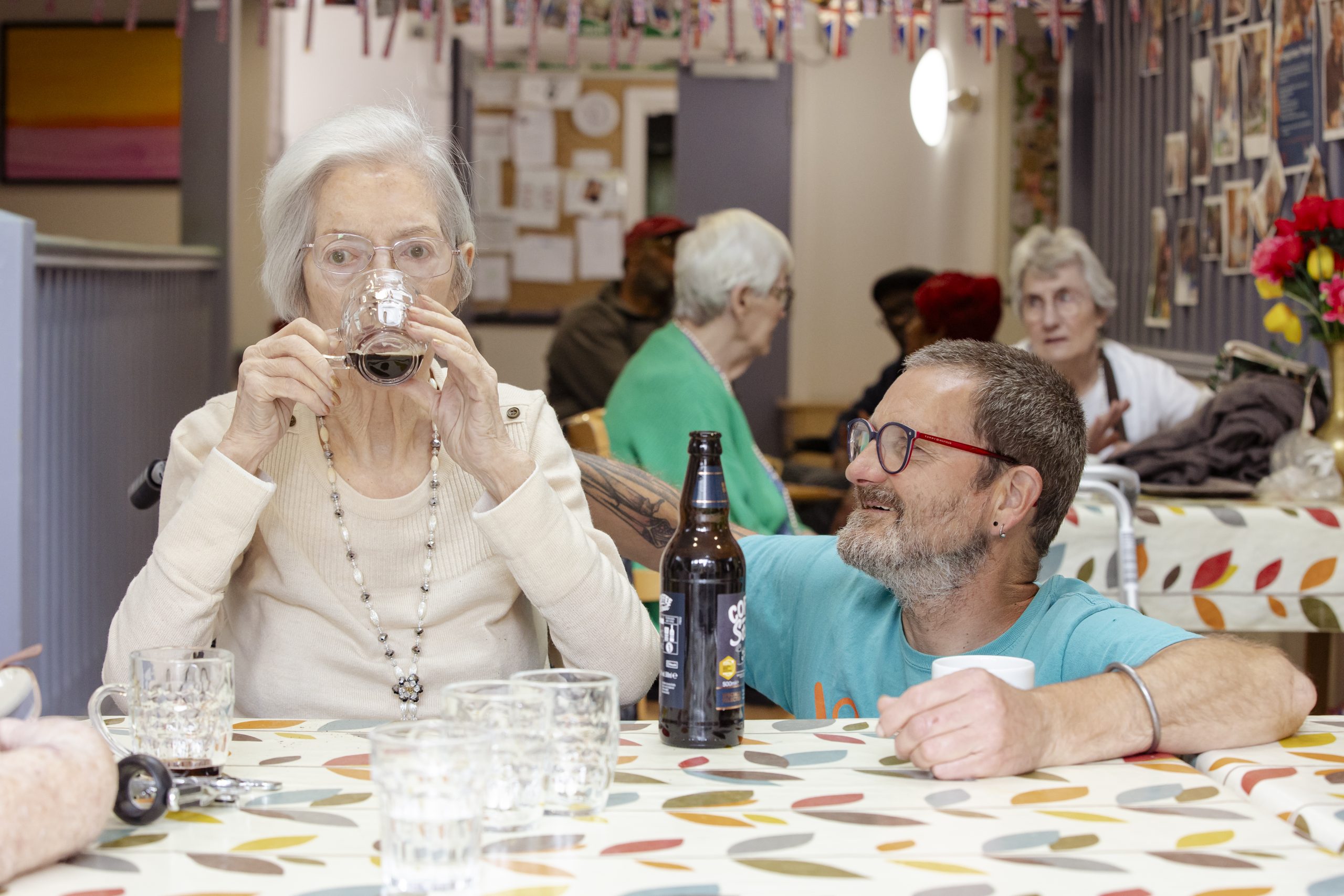
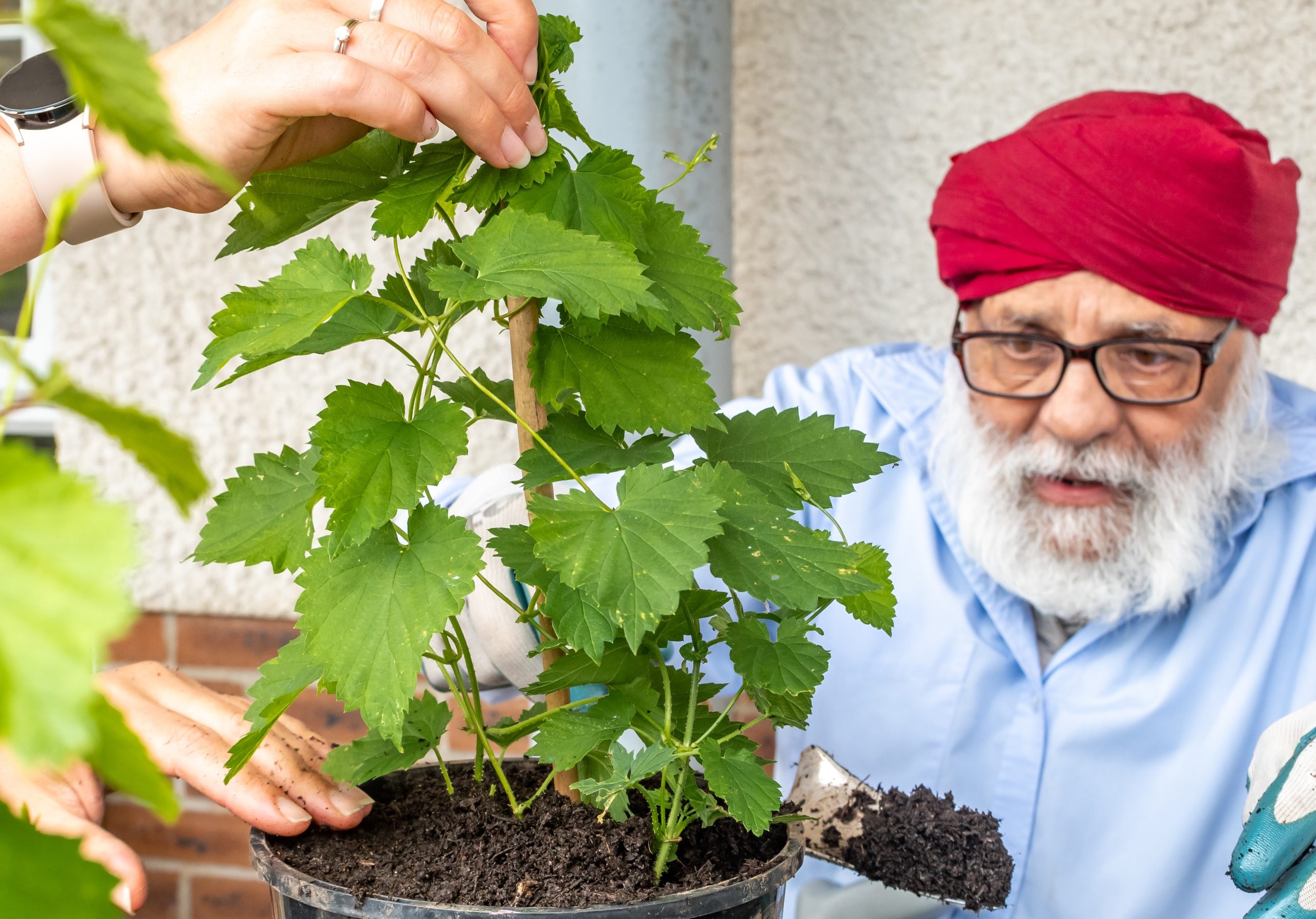
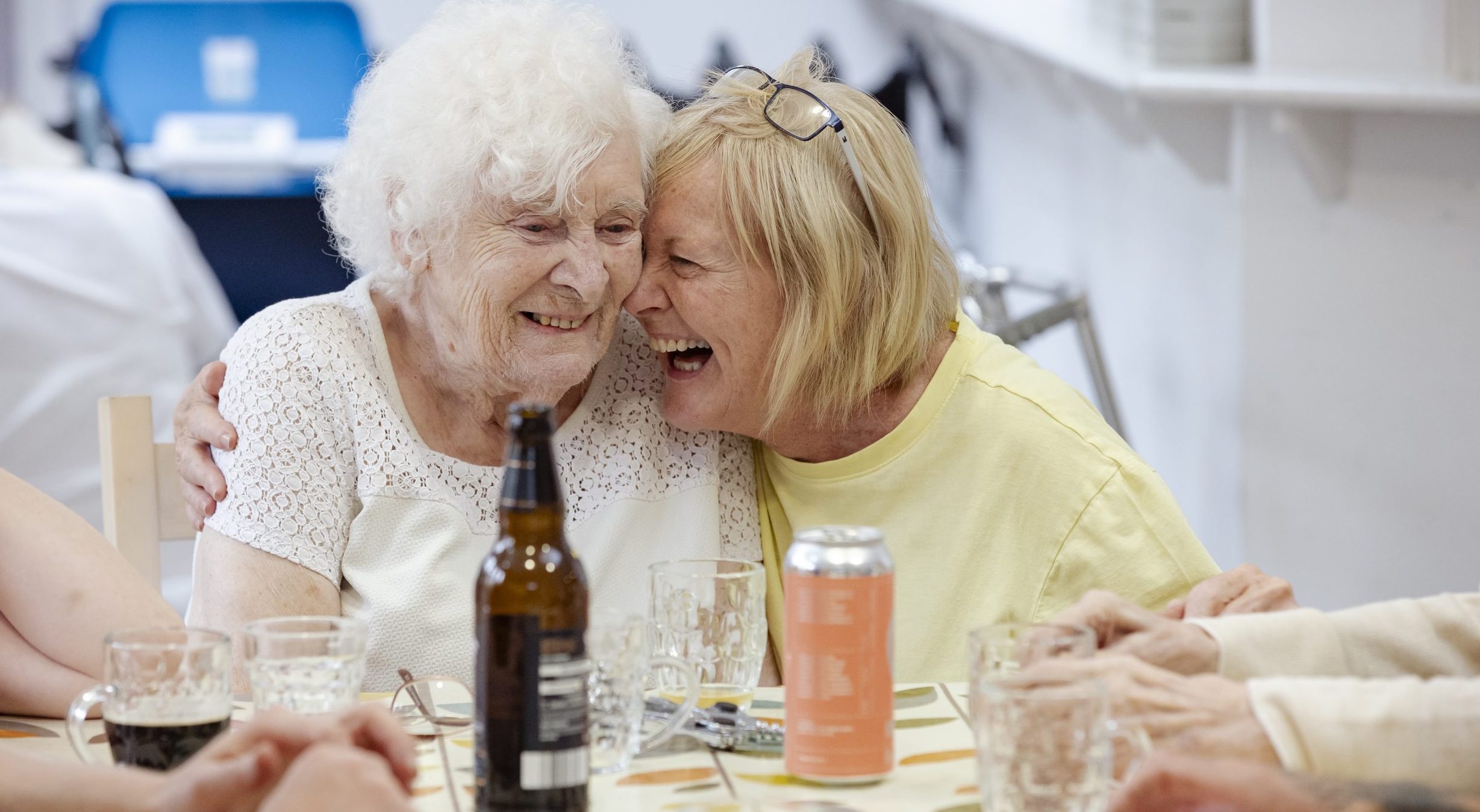
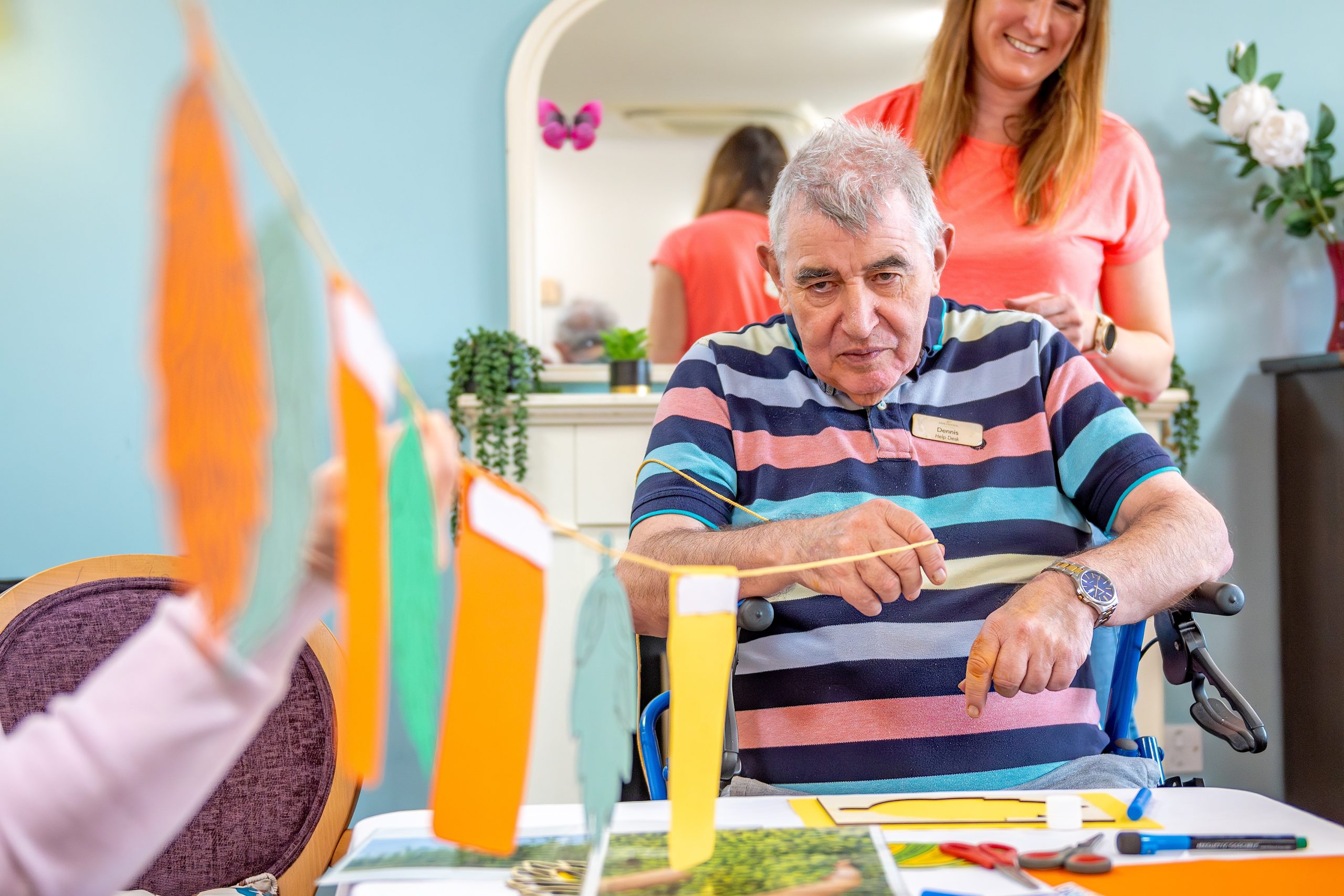
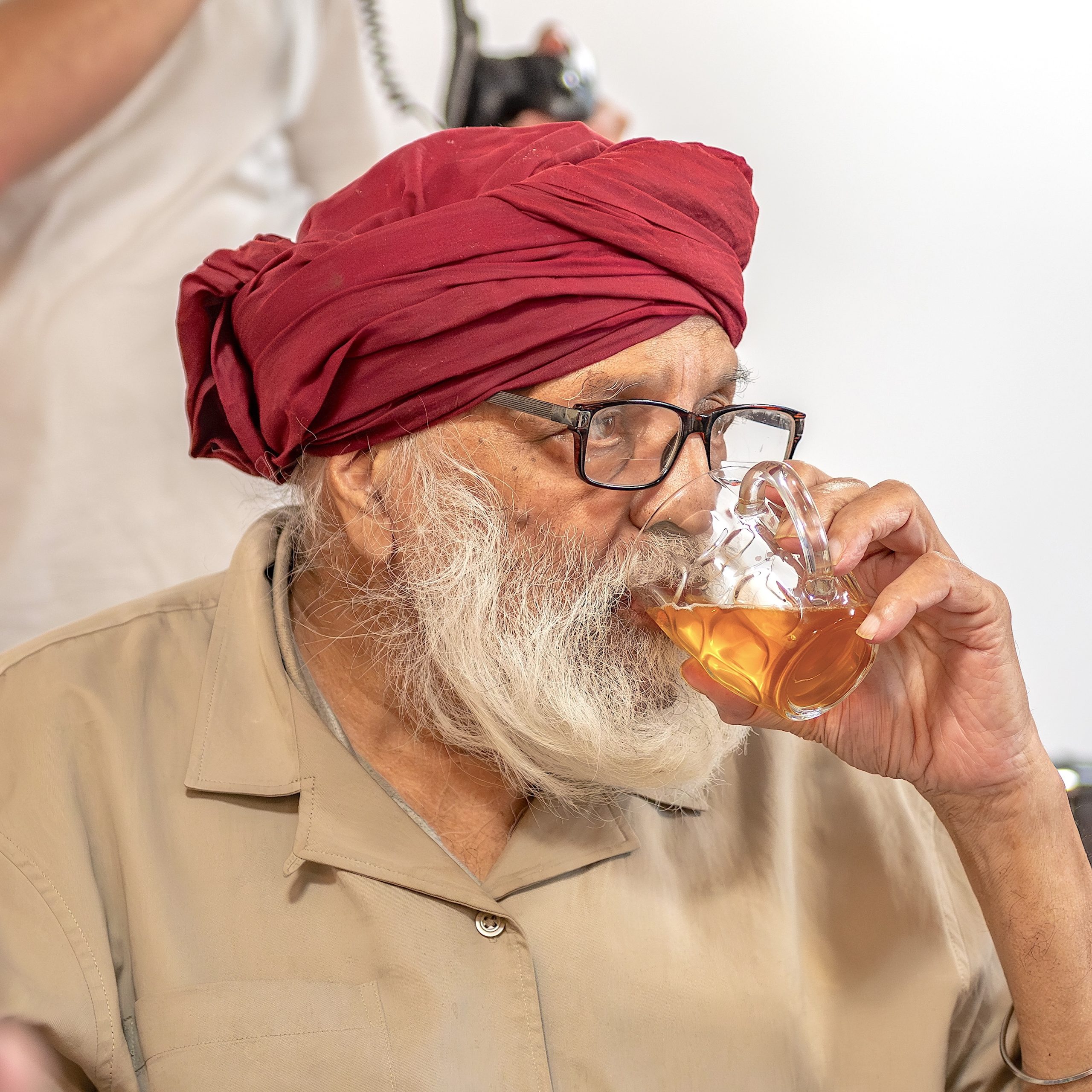
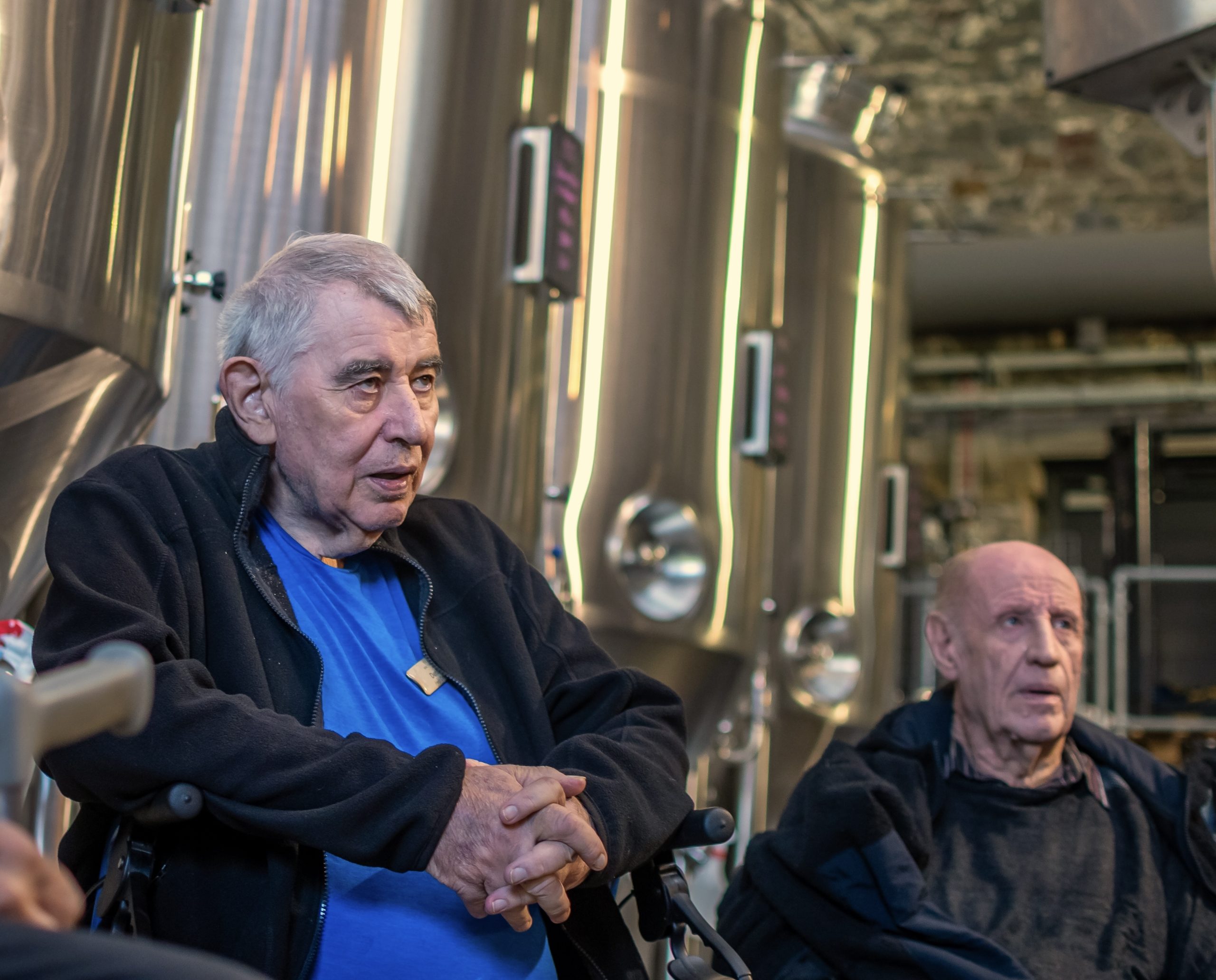
Therapeutic Benefits
Sessions comprise a mix of interventions and activities known to be of therapeutic benefit to people living with dementia. Reminiscence and sensory play are threaded through all the sessions, most of which are also grounded in social and therapeutic horticulture. Residents experience a sense of agency by being left to tend to the plant themselves and by contributing to a broader community undertaking.
We also help residents feel better connected to their local community by bringing people into the care home – not only those working on the project but also volunteers.
Complementary green craft and art activities make the sessions accessible to all, and every session ends with a communal sing-song as we sample some beer together.
Alcohol plays a significant part in the lives of many adults in the UK. There is a tendency for care home residents to be infantilised, which means they have less agency around food and drink: talk and reminiscence about beer and pub culture offers a way of exploring different parts of people’s lives and identities without censorship.
Project Outcomes
One of our main goals at the start of the project was to challenge or disrupt dominant cultural representations of life in a care home – something the project has achieved through media attention on a national level, including a Guardian reel which has been watched over one million times and a feature on BBC’s The One Show.
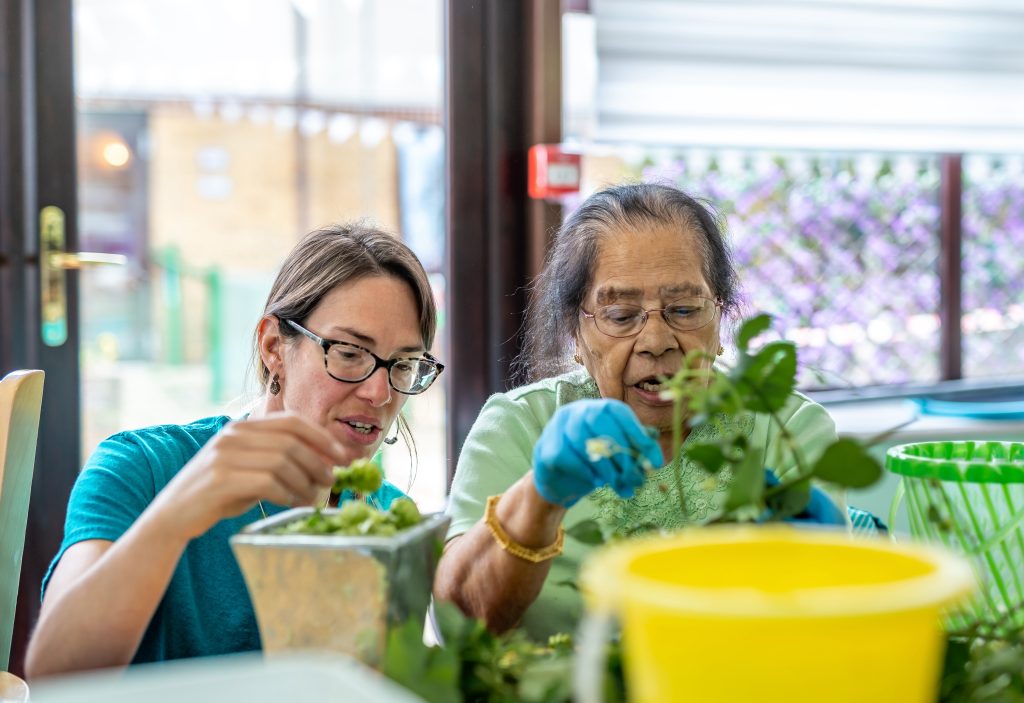
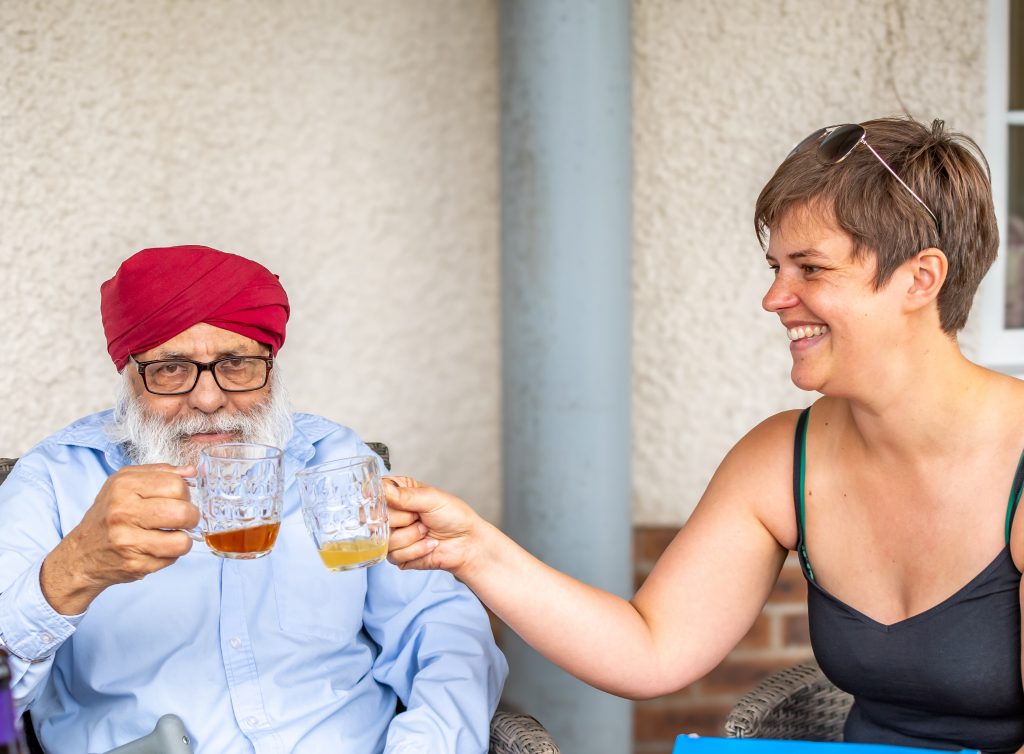
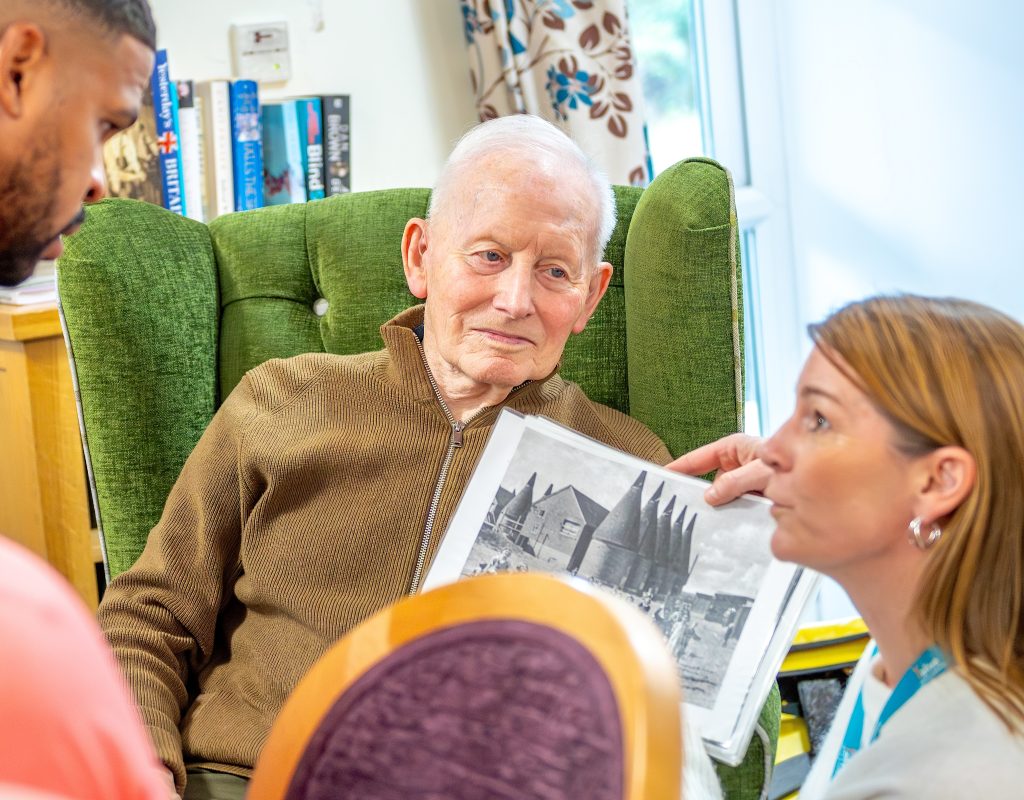
The media attention has also allowed Alive to promote the importance of meaningful, engaging activities to a broad audience and to challenge misconceptions about older people, dementia, and care home culture.
The project has a standalone website and an activities pack so practitioners can replicate our work.
Research data is currently being collated – once papers have been published, we will link them here with a summary of their findings.
Any questions?
Find out more by contacting our Project Manager, Guy:
guy@aliveactivities.org or 07861 385 543.
All photographs © Camilla Adams, Jayden Allen and Guy Manchester
